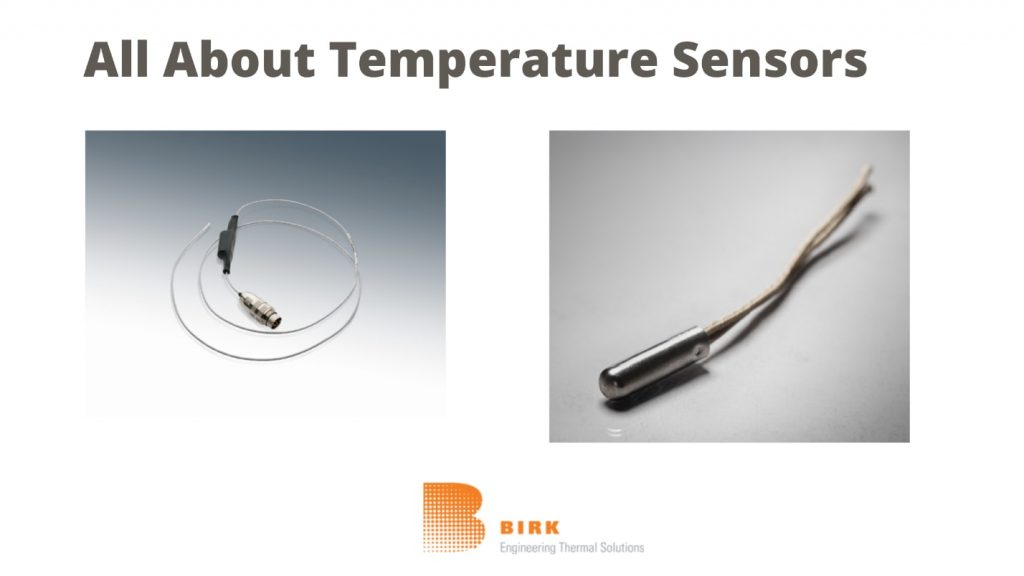Temperature indicates the heat content in a material or a body. While most of us do not notice subtle temperature changes, quite a few industrial processes cannot withstand them. The temperature needs to be measured and maintained for desired results. This is done using temperature sensors. There are numerous applications of temperature sensors in industries. Temperature measurement sensors are devices that measure the current temperature and note the differences between the required and existing temperature. This is especially required in many industrial processes where temperature control is crucial. This device can be used independently or integrated with a computerized system for process automation. With process automation in temperature control, temperature sensors can issue alerts to the system in case there are alarming changes in the process temperature. This post discusses the details of temperature sensors, their types, uses, and more.
Types of Temperature Sensors Used in Industrial Applications
Broadly speaking, there are two categories of temperature sensors—contact and non-contact. As the terms imply, the temperature measurement in contact temperature sensors is performed through physical contact with the object or solution, while in the case of non-contact sensors, IR waves or sound waves are used to measure the temperature, and hence, physical contact is not required.
Here are some types of contact-based temperature sensors:
- Thermistors, thermocouples, and RTDs are all examples of contact-based temperature measurement.
- Thermocouples are voltage-based sensors. Voltage is generated when two metals are placed adjacent to each other and there is a difference in temperature. These simple and basic sensors can detect unusually high temperature differences and can resist heat beyond 1500°C.
- Resistance temperature detectors, or RTDs, measure temperature based on the way the resistance changes in different temperature environments.
- Integrated assemblies comprise silicone encapsulated sensors, which can have integrated circuits or ICs. They provide voltage readings that can be directly read on a display screen of a connected device, such as a microcontroller. These sensors are widely used in consumer electronic devices.
The following are some types of non-contact-based temperature sensors:
- Acoustic measurement devices: These devices work based on temperature variations, which occur due to the dispersing velocity of sound. They generally measure temperature using the resonance method.
- Infrared measurement devices: These devices use thermal radiation to measure temperature changes. Thermal waves are focused onto the receiving object. With this, an electrical signal that is directly proportional to the quantity of radiation is produced, and the temperature is measured.
Factors to Consider When Selecting a Temperature Sensor
Integrating temperature sensors into your existing system or installing integrated temperature sensor assemblies would certainly improve your process’s efficiency and accuracy. The type of temperature sensor you should select largely depends upon the changes in temperature your process can tolerate. Some processes may not be affected by subtle temperature changes, in which case you can opt for sensors with a wider range of temperature measurement. However, if you require precision temperature control and want to achieve tight tolerances, you need to make your selection accordingly. Following are some pointers that may help you decide on the type of sensor best suited for your application:
- If you can afford a wide temperature range, opt for thermocouple sensors.
- RTD sensors offer an extremely accurate reading, and you can opt for this type if the temperature tolerance levels of the application are relatively low.
- If you are looking for integrated sensor assemblies or sensors to be fitted into integrated circuits, opt for silicon sensors.
- Aside from these factors, you need to consider the physical parameters, such as ambient temperature, the sensitivity of the probe, and so on.
- Depending upon the application, check if the sensor needs to be resistant to shocks and vibration, as this would impact temperature measurement.
- Check the wire winding of the temperature. Overall, checking the design and construction of the sensor is important. This is aside from the accuracy and stability aspects.
- Check the sensitivity as well as the linearity of the sensor. Also, check if the sensor requires any extra voltage or other power source as a trigger to start functioning. Thermocouple sensors are self-powered devices and do not need external excitation.
- Thermocouple types J and K made of Teflon and fiberglass are ideal in harsh industrial environments. These sensors have applications in commercial segments and medical and chemical industries.
- You can opt for bolt-on temperature sensors if you plan to retrofit them to your existing system. They can be coupled with RTD nickel sensors, RTD platinum sensors, and thermocouple sensors to be integrated into assemblies.
- Bolt-on temperature sensors are suitable in industries such as aerospace, engineering, medical, and semiconductor and electronics.
- If your application requires accurate and fast output, opt for RTD sensor They are also suitable for heavy-duty applications and harsh environments. These sensors have applications in medical, aerospace, HVAC, defense, automotive, and other such crucial industries.
If you are looking for temperature sensors for your application, ensure you source them from reliable and certified thermocouple sensor manufacturers and suppliers. Make sure they understand your exact requirements and customized temperature sensors.
